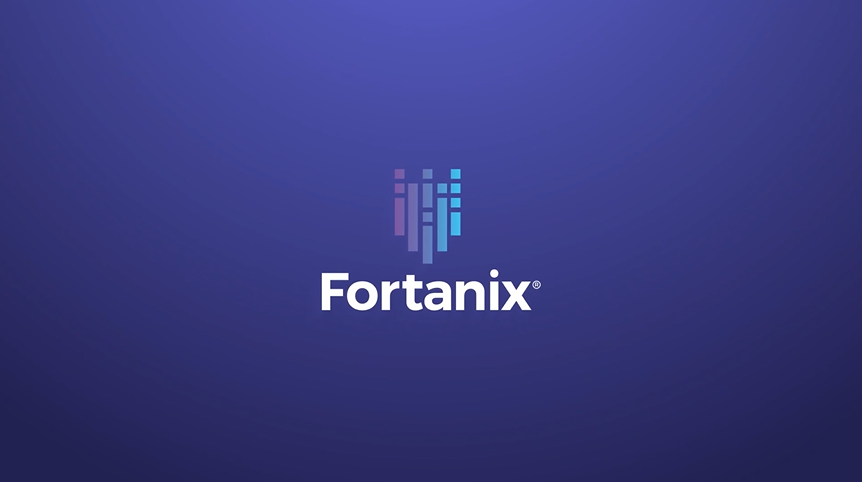 BLOCKCHAIN
BLOCKCHAIN
 BLOCKCHAIN
BLOCKCHAIN
 BLOCKCHAIN
BLOCKCHAIN
Cybersecurity startup Fortanix Inc. is rolling out two new software tools designed to protect blockchain users’ digital assets from hacking and prevent erroneous transactions.
The startup debuted the tools ahead of next week’s annual RSA cybersecurity event in San Francisco.
Mountain View, California-based Fortanix is backed by more than $45 million in funding from investors such as Intel Capital. The startup provides software products that help organizations store and process sensitive data in a more secure manner.
Users store digital assets such as cryptocurrencies in a type of program known as a crypto wallet. If hackers breach the infrastructure of a company that operates a crypto wallet service, they can potentially steal digital assets from the company’s customers.
The first of the two new blockchain tools that Fortanix debuted today, Fortanix Non-Custodial Warm Wallet, promises to reduce the risk posed by such cyberattacks. According to the startup, it makes it impossible to access the digital assets in a crypto wallet without the user’s authorization. Users must complete a two-factor authentication process before actions such as moving cryptocurrency to a different wallet can be completed.
Fortanix carries out the two-factor authentication process in a so-called trusted execution environment. A trusted execution environment is an isolated section of a server’s memory that is accessible only to a specific application. Other applications running on the same server, administrators and even the server’s operating system can’t access the isolated memory.
According to Fortanix, its technology can keep the digital assets in a crypto wallet secure even if the company that operates the crypto wallet experiences a data breach. Moreover, the technology promises to simplify regulatory compliance for crypto wallet operators. Fortanix says the security features of trusted execution environments make it easier for companies to comply with cybersecurity regulations.
Fortanix’s trusted execution environment technology uses a capability called Software Guard Extensions, or SGX, that Intel Corp. ships with many of its server processors. SGX is available in Intel-powered servers and cloud instances that run on the chipmaker’s processors. A number of rival chipmakers, such as Advanced Micro Devices Inc., have also added trusted execution environment features to their processors.
“With the growth in decentralized applications that depend upon blockchain technology and the transition to a Web 3.0 information domain, blockchain services need a convenient way for their users to store digital assets,” said Richard Searle, vice president of confidential computing at Fortanix. It’s also necessary to ensure “that the wallet providers cannot steal these digital artifacts because of misconfigurations or malicious actors that attack the backend wallet implementation,” he added.
Fortanix Non-Custodial Warm Wallet is rolling out alongside a second blockchain security tool dubbed Fortanix Ignite One-Time Signer. According to the startup, the tool is designed to ease the task of verifying that blockchain transactions are legitimate. It also promises to help blockchain companies avoid double signing, an error that can emerge during the process of verifying transactions.
Fortanix Ignite One-Time Signer offers disaster recovery features alongside its other capabilities. According to the startup, the tool enables blockchain companies to recover more easily from technical issues such as infrastructure malfunctions.
Fortanix’s two new blockchain security tools are integrated into its existing Data Security Manager offering. It’s an enterprise cybersecurity product that companies use to manage sensitive data such as encryption keys. Data Security Manager also offers other features, such as a capability that makes it possible to run the most important parts of a business application’s code in a trusted execution environment.
Support our mission to keep content open and free by engaging with theCUBE community. Join theCUBE’s Alumni Trust Network, where technology leaders connect, share intelligence and create opportunities.
Founded by tech visionaries John Furrier and Dave Vellante, SiliconANGLE Media has built a dynamic ecosystem of industry-leading digital media brands that reach 15+ million elite tech professionals. Our new proprietary theCUBE AI Video Cloud is breaking ground in audience interaction, leveraging theCUBEai.com neural network to help technology companies make data-driven decisions and stay at the forefront of industry conversations.